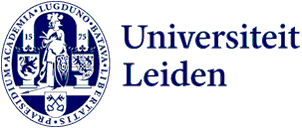Can we make bioplastics with artificial photosynthesis?
Mimicking photosynthesis to produce bioplastics sustainably and efficiently. Researchers from the Institute of Biology Leiden (IBL) and the Leiden Institute of Chemistry (LIC) will assess this new approach. ‘An exciting opportunity to explore a new, appealing research topic in a collaboration between our two institutes.’ That is how Lennart Schada von Borzyskowski and Lars Jeuken describe their successful application for an NWO XS grant, which comprises 50,000 euros.
‘We will use this grant to explore whether we can connect carbon dioxide-fixing bacteria to nano-sized “solar panels”. This is a potentially highly efficient method to convert CO2 into valuable chemicals using light,’ Schada von Borzyskowski says. Jeuken adds: ‘By combining our areas of expertise, we can enter exciting new territory. We will apply synthetic biology approaches to enable CO2-fixing bacteria to accept electrons from so-called quantum dots, nanoparticles that harvest energy from light. This gives energy to bacterial metabolism which makes it possible to convert carbon dioxide into more complex chemicals. And plastic is such a chemical.’
Combine bacteria with quantum dots
The researchers are eager to start the study. Schada von Borzyskowski says: ‘The approach of investigating biohybrid systems that combine bacteria with quantum dots is an exciting new research line at the interface of biology, chemistry, and physics.’ Jeuken agrees: ‘This work will strengthen the ties between IBL and LIC, and represents an innovative way to conduct fundamental research that might have important applications in the future’.

About the NWO XS grant
XS grants from the Dutch Research Council (NWO) are awarded for the initial exploration of highly promising research topics. The proposed research should be ground-breaking and high risk. To qualify for the grant, NWO states that what counts is that all results, be they positive or negative, must contribute to the advancement of science. This round, 28 research projects are awarded the grant.
